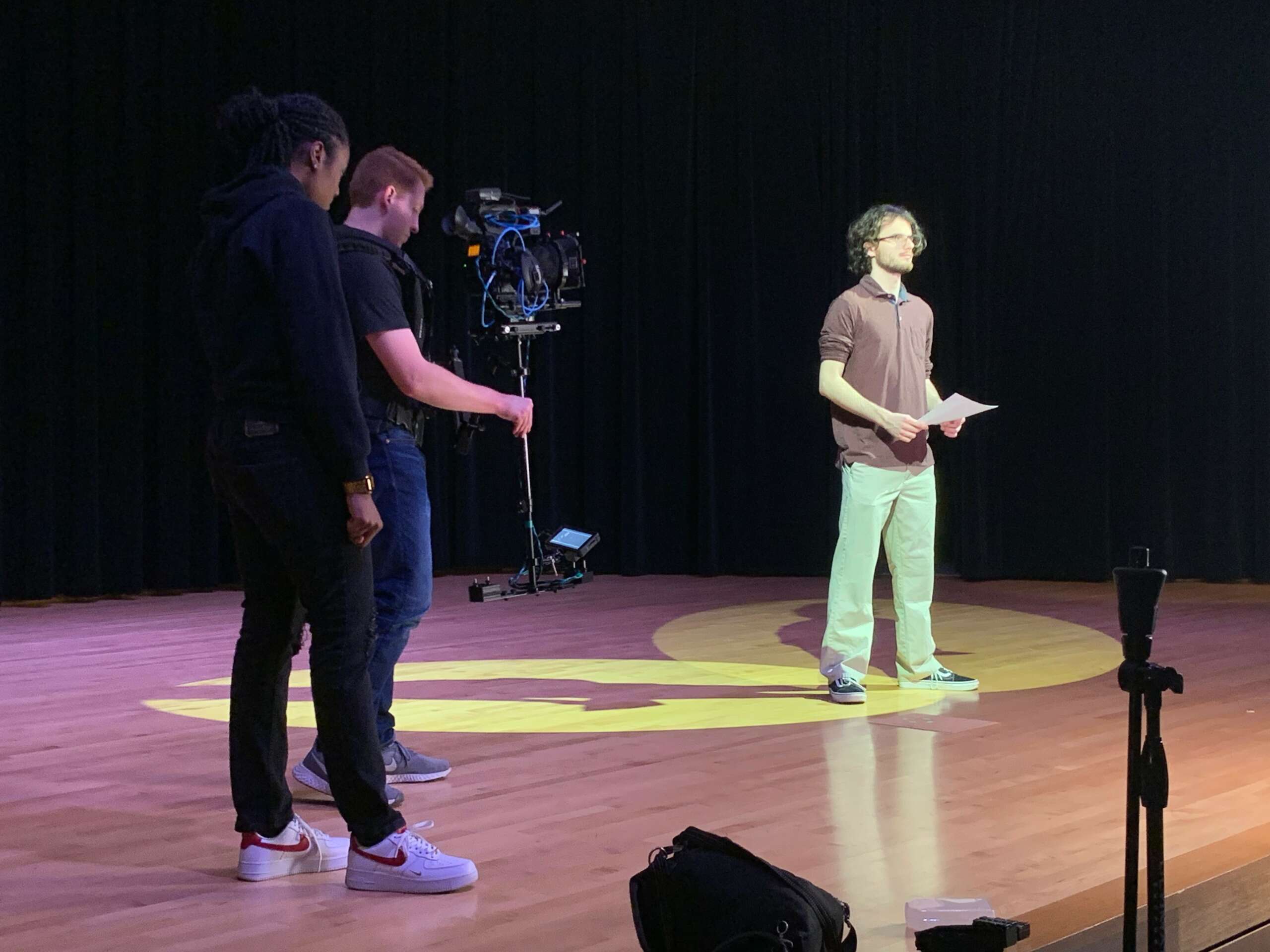We recently connected with Denise Blane and have shared our conversation below.
Alright, Denise thanks for taking the time to share your stories and insights with us today. What’s been the most meaningful project you’ve worked on?
As a filmmaker, each project I undertake is deeply personal and rooted in experiences that have shaped my worldview. Currently, I’m directing and producing a documentary shedding light on a hate crime that tragically impacted my own family, including my cousin Anderson Retic. This project holds immense significance for me as it not only serves as a platform to honor the memory of those affected but also amplifies the urgency of addressing hate crimes and fostering empathy and understanding in our society.
Reflecting on my past work, I’ve always been drawn to stories led by individuals from marginalized communities, exploring themes ranging from the perils of gun violence, to the resilience of black identity in predominantly white spaces, and the unwavering determination to pursue one’s aspirations. Each of these projects has been a manifestation of moments in my own life where I’ve witnessed and/or experienced the impact of systemic injustices or the triumph of the human spirit over adversity.
Through my filmmaking, I strive to not only spark conversations but also inspire action and promote positive change. Every story I tell is a testament to the power of storytelling. Ultimately, my meaningful projects are a reflection of my commitment to amplifying marginalized voices and contributing to a more inclusive and compassionate world through the medium of film.


Denise, before we move on to more of these sorts of questions, can you take some time to bring our readers up to speed on you and what you do?
Since I was young, I’ve been captivated by filmmaking. One of my earliest memories of this passion dates back to when I was about 8 or 9 years old. My Aunt introduced me to a film called “John Q,” and from that moment on, I was hooked. After watching the film, my Aunt showed me the “extras” category on the DVD, and for an hour, we delved into behind-the-scenes facts and information about the cast and director. This experience sparked a habit – every time I watched a film on DVD, I made a beeline for the extras to uncover the magic behind the scenes.
In middle school, I was enrolled in a program for high school students called Net Literacy. Our mission was to create PSAs to be broadcast in schools across Indiana. Despite being the youngest participant during my first summer, I eagerly embraced the opportunity. Each week, I was assigned to a new team and a new role, allowing me to gain a comprehensive understanding of the fundamentals of filmmaking. I continued in this program every summer until I graduated from high school, gradually assuming leadership roles and ultimately serving as a film producer, overseeing new projects each week.
Following high school, I pursued my passion at The University of Saint Francis, where I obtained a bachelor’s degree in Communication with a focus on film. Since then, I’ve been taking on various projects as they come my way, ensuring that each bears my unique twist and personal style, whether they’re commercial or narrative endeavors.
As an artist, I’m committed to providing a much-needed platform for people of color (POC) through the films I create. I aspire to be a role model for those who come after me and a living tribute to those who paved the way before me. I’m acutely aware of the responsibility I carry to contribute to making this world a better place for everyone, and I’m prepared to tackle it head-on.


In your view, what can society to do to best support artists, creatives and a thriving creative ecosystem?
To support artists and a thriving creative community, society should ensure access to resources like funding, mentorship, and training programs. Diversity and inclusion in the industry are essential, as is recognizing and providing platforms for artists’ work. It’s also vital to invest in arts education, advocate for supportive policies, and foster collaboration among artists to enhance growth and innovation in the creative ecosystem.


What’s the most rewarding aspect of being a creative in your experience?
For me, as a black, queer woman, the most rewarding aspect of being an artist and director lies in the ability to provide representation in my projects. It’s incredibly fulfilling to offer visibility to communities who have long been underrepresented and misrepresented in media. Through storytelling, I can empower people who see themselves in my work. Representation is vital because it helps people feel validated and included. Knowing my films contribute to a more diverse and fair creative world keeps me motivated to push for representation in all parts of filmmaking.


Contact Info:
- Website: https://deniseblane.squarespace.com/
- Instagram: https://www.instagram.com/niecymichelle1104/
- Linkedin: www.linkedin.com/in/denise-blane-b01434198
Image Credits
Ira Mallory Ehlay Htoo


